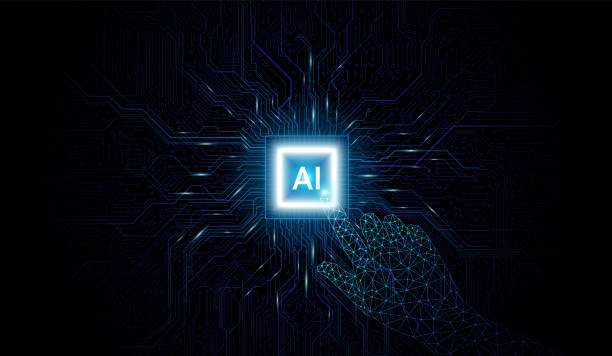What is Artificial Intelligence? Definitions, Basic Concepts and Applications

Artificial Intelligence (AI) is a branch of computer science that deals with building machines and programs capable of performing tasks that usually require human intelligence.
These tasks include learning, reasoning, problem-solving, understanding natural language, pattern recognition, and decision-making.
The main goal of AI is to create systems that can think and act like humans.
In simple terms, AI is an effort to simulate intelligent human processes in machines.
This simulation can include the ability to learn from experience, adapt to new situations, think abstractly, and understand complexities.
AI systems use complex algorithms and mathematical models to analyze data and identify patterns that allow them to make decisions or predictions.
The applications of AI are very broad and have affected almost all industries.
These applications include the following Wikipedia:
- Automotive: Self-driving cars
- Healthcare: Diagnosing diseases and providing personalized treatments
- Finance: Fraud detection and risk management
- Education: Providing personalized education
- Marketing: Analyzing customer behavior and providing targeted advertising
In short, AI is a transformative technology that has the potential to improve people’s lives and increase productivity in various industries.
With the ever-increasing advancement of this technology, it is expected that its role will become much more prominent in the near future.
Tired of losing business opportunities due to not having a professional corporate website? Worry no more! With Rasaweb’s corporate website design services:
✅ Your brand’s credibility and professionalism will increase.
✅ You will attract more customers and sales leads.
⚡ Get a free consultation to get started now!
Types of Artificial Intelligence: A Look at Categories and Different Levels

AI can be categorized based on various criteria.
One of the most common classifications is based on the level of ability and intelligence of the system:
- Narrow AI: This type of AI is designed to perform a specific task and performs very well in that area.
Examples of Narrow AI include facial recognition systems, search engines, and voice assistants like Google. - General AI: This type of AI is still under development, and its goal is to create systems that can do anything a human can do.
- Super AI: This type of AI is beyond human intelligence and is capable of solving complex problems that humans are unable to solve.
In addition, AI can also be categorized based on learning methods:
- Machine Learning: In this method, the system learns using data and identifies patterns that allow it to make decisions or predictions.
- Deep Learning: This method is a subset of machine learning that uses artificial neural networks with many layers for learning.
- Reinforcement Learning: In this method, the system learns by trial and error and receives rewards or punishments.
Understanding these classifications helps us to better understand the capabilities and limitations of AI systems and to use them more effectively.
Currently, most existing AI systems are of the Narrow AI type, but extensive research is being conducted in the field of General and Super AI.
Machine Learning: The Beating Heart of AI, Examining Algorithms and Methods

Machine Learning is one of the most important and widely used sub-branches of AI.
Machine learning allows systems to learn from data and improve their performance without explicit programming.
In fact, machine learning systems use various algorithms to analyze data and identify patterns that allow them to make decisions or predictions.
Some of the most important machine learning algorithms include:
- Regression: For predicting continuous values such as housing prices or product sales.
- Classification: For categorizing data into different groups such as detecting spam emails or diagnosing diseases.
- Clustering: For grouping similar data together, such as segmenting customers based on purchasing behavior.
- Decision Tree: For creating a tree model that makes decisions based on different features of the data.
- Neural Networks: For creating complex models that are capable of learning non-linear patterns in the data.
There are various methods for machine learning, including:
- Supervised Learning: In this method, the system learns using labeled data.
- Unsupervised Learning: In this method, the system learns using unlabeled data.
- Semi-supervised Learning: In this method, the system learns using a combination of labeled and unlabeled data.
The table below provides a brief overview of regression and classification algorithms.
| Algorithm | Description | Application |
|---|---|---|
| Linear Regression | Attempts to find the best line to predict continuous values | Predicting price, sales, etc. |
| Logistic Regression | Attempts to find the best curve to predict the probability of an event occurring | Spam detection, disease diagnosis |
Deep Learning: Revolution in AI, Neural Networks and Applications

Deep Learning is a subset of machine learning that uses artificial neural networks with many layers for learning.
These networks are designed inspired by the structure of the human brain and are capable of learning very complex patterns in the data.
Deep learning allows AI systems to perform exceptionally well in areas such as image recognition, natural language processing, and speech recognition.
One of the most important features of deep learning is the ability to learn features automatically.
In traditional machine learning methods, engineers must manually extract important features, but in deep learning, neural networks are able to learn these features automatically from data.
This makes deep learning very suitable for solving complex and large problems.
Some important applications of deep learning include:
- Image Recognition: Facial recognition, object detection, and medical image analysis
- Natural Language Processing: Machine translation, text generation, and sentiment analysis
- Speech Recognition: Speech recognition, music recognition, and environmental sound recognition
- Automotive: Self-driving, obstacle detection, and vehicle control
- Games: Computer games, strategy games, and simulations
With the ever-increasing advancement of hardware and algorithms, it is expected that deep learning will play a more important role in the development of AI and create new applications in various fields.
Are you bothered by losing customers due to the outdated appearance or slow speed of your online store? The Rasaweb expert team solves these problems by designing a professional online store!
✅ Increased customer trust and brand credibility
✅ Amazing speed and excellent user experience
Get a free consultation with Rasaweb now ⚡
Natural Language Processing: A Bridge Between Humans and Machines
![]()
Natural Language Processing (NLP) is a branch of AI that allows machines to understand and interact with human language.
The main goal of NLP is to create systems that can automatically analyze, translate, generate, and respond to human language.
NLP includes a set of techniques and algorithms that are used to analyze the structure and meaning of human language.
These techniques include:
- Parsing: Analyzing the grammatical structure of sentences
- Semantic Analysis: Understanding the meaning of sentences and words
- Named Entity Recognition: Identifying and classifying named entities such as names of people, organizations, and places
- Sentiment Analysis: Determining the emotions and opinions present in the text
- Natural Language Generation: Generating meaningful and fluent texts
The applications of NLP are very broad and include:
- Machine Translation: Translating texts from one language to another
- Voice Assistants: Answering questions and performing voice commands
- Chatbots: Interacting with users via text or voice
- Text Summarization: Generating short summaries of long texts
- Spam Detection: Detecting spam emails and filtering them
With the ever-increasing advancement of NLP, it is expected that the interaction between humans and machines will become more natural and efficient, and new applications will be created in various fields.
Applications of AI in Various Industries

Artificial intelligence (AI) is rapidly becoming a fundamental technology in various industries, offering a wide range of applications in various fields.
From healthcare to finance and manufacturing, AI has the potential to improve efficiency, reduce costs, and drive innovation.
Here are some of the applications of AI in various industries:
- Healthcare: Diagnosing diseases, providing personalized treatments, managing medications, and developing new drugs
- Finance: Fraud detection, risk management, providing personalized financial services, and algorithmic trading
- Manufacturing: Optimizing production processes, quality control, predicting equipment failure, and robotics
- Retail: Analyzing customer behavior, providing personalized offers, inventory management, and robotics
- Transportation: Self-driving cars, route optimization, traffic management, and logistics
- Energy: Optimizing energy consumption, predicting energy production, and managing distribution networks
These are just a few examples of the applications of AI in various industries.
With the ever-increasing advancement of this technology, it is expected that newer applications will be created in the near future and AI will play a more important role in the global economy.
Challenges and Limitations of AI

Despite the high potential of artificial intelligence (AI), this technology also faces challenges and limitations that should be considered.
Some of these challenges include:
- Data: AI needs a lot of data to learn and function.
A shortage of data or its low quality can affect the performance of AI systems. - Computation: Training complex AI models requires a lot of computing power.
This can be costly and limit access to this technology. - Interpretability: Some AI models, such as deep neural networks, are very complex and it is difficult to interpret their performance.
This can reduce trust in these systems. - Bias: If the data used to train AI models is biased, AI systems may also behave biasedly.
- Ethics: The use of artificial intelligence (AI) is associated with many ethical issues, such as privacy, job security, and accountability.
The table below provides a summary of these challenges:
| Challenge | Description |
|---|---|
| Data | Shortage or low quality of data |
| Computation | Need for high computing power |
| Interpretability | Difficulty in interpreting model performance |
| Bias | Bias in training data |
| Ethics | Ethical issues related to privacy, etc. |
Overcoming these challenges is essential for the responsible development and use of artificial intelligence (AI).
Future of AI: Prospects and Possibilities

The future of artificial intelligence (AI) is very bright and full of potential.
With the ever-increasing advancement of this technology, it is expected that AI will play a more important role in people’s lives and the global economy.
Some of the prospects and possibilities for the future of AI include:
- General AI: Development of general AI that is capable of doing anything a human can do.
- Automation: Further automation of tasks and processes in various industries, leading to increased productivity and reduced costs.
- Personalization: Providing personalized services and products based on people’s needs and preferences.
- Healthcare: Improving disease diagnosis and treatment, developing new drugs, and providing remote healthcare services.
- Education: Providing personalized education and access to education for all people anytime, anywhere.
Of course, it should also be noted that the development of AI is associated with challenges and risks that should be considered.
For example, automation may lead to job losses, and ethical issues related to privacy and data security should be considered.
Overall, the future of AI is full of opportunities and challenges.
With responsible and conscious development of this technology, its potential can be used to improve people’s lives and create a better world.
AI in Blogs can also play an important role in the future.
Tired of your online store website not generating as much revenue as it has the potential to? Rasaweb, a specialist in professional online store website design, solves this problem forever!
✅ Increased sales rate and revenue
✅ High loading speed and exceptional user experience
⚡ Get a free online store website design consultation
Skills Needed to Enter the World of AI

Entering the world of artificial intelligence (AI) requires acquiring various skills that include technical knowledge, analytical skills, and creativity.
Here are some of the most important skills needed to enter this field:
- Programming: Fluency in programming languages such as Python, R, and Java.
- Mathematics: Strong knowledge in mathematics areas such as linear algebra, calculus, and statistics and probability.
- Machine Learning: Understanding of machine learning concepts and algorithms.
- Deep Learning: Knowledge of deep neural networks and their applications.
- Natural Language Processing: Familiarity with natural language processing techniques and their applications.
- Analytical Skills: Ability to analyze data, identify patterns, and solve complex problems.
- Creativity: Ability to come up with new and innovative ideas to solve problems.
In addition, having soft skills such as teamwork, communication, and problem-solving is also essential for success in this field.
By acquiring these skills and continuous effort, you can enter the exciting and challenging world of artificial intelligence (AI) and make progress in this field.
Resources and Tools for Learning AI

To learn artificial intelligence (AI), various resources and tools are available that you can use.
These resources include online courses, books, scientific articles, websites, and software tools.
Here are some of the most important resources and tools for learning AI:
- Online Courses: Online courses on platforms such as Coursera, edX, and Udacity.
- Books: Reference books in the field of machine learning, deep learning, and natural language processing.
- Scientific Articles: Articles published in reputable conferences and journals.
- Websites: Specialized websites in the field of AI such as TensorFlow and PyTorch.
- Software Tools: Machine learning libraries such as TensorFlow, PyTorch, and Scikit-learn.
By using these resources and tools, you can acquire the knowledge and skills needed to enter the world of AI.
Also, participating in practical projects and continuous practice can help you learn and progress in this field.
With effort and perseverance, you can achieve success in this field.
AI Jobs can also give you useful information.
FAQ
| Question | Answer |
|---|---|
| 1. What is Artificial Intelligence (AI)? | It is a branch of computer science that aims to create machines capable of simulating human intelligence and performing tasks that require human thinking, such as learning, problem-solving, and decision-making. |
| 2. What are the main types of AI? | They can be classified into Weak AI (Narrow AI) that focuses on a specific task, General AI that possesses comprehensive human abilities, and Super AI that exceeds human intelligence. |
| 3. Mention some common AI applications in our daily lives. | These include voice assistants (such as Siri and Alexa), recommendation systems (such as Netflix and Amazon), self-driving cars, facial recognition systems, and spam filters. |
| 4. What is the difference between Artificial Intelligence and Machine Learning? | Artificial intelligence is the broader concept of creating intelligent machines, while machine learning is a subset of artificial intelligence that focuses on enabling systems to learn from data without explicit programming. |
| 5. What is Deep Learning? | It is a subset of machine learning that uses multi-layered artificial neural networks (deep neural networks) to process data and discover complex patterns, and is used in image and speech recognition. |
| 6. What are the most prominent benefits of AI? | Improving efficiency and productivity, automating repetitive tasks, making better decisions based on big data analysis, and developing solutions for complex problems in areas such as medicine and science. |
| 7. What are the main challenges facing the development and deployment of AI? | These include the need for huge amounts of high-quality data, privacy and security issues, bias in data and algorithms, and high development and maintenance costs. |
| 8. Does AI raise ethical or social concerns? | Yes, it raises concerns related to privacy, algorithmic bias, job losses due to automation, and responsibility for errors committed by intelligent systems, and the need for a regulatory framework. |
| 9. How can AI affect the future of the labor market? | It can lead to the automation of some routine jobs, but it will also create new jobs that require advanced skills in developing, operating, and maintaining AI systems. |
| 10. What are some modern or promising technologies in the field of AI? | These include advanced Natural Language Processing (NLP) (such as large language models such as ChatGPT), Computer Vision, Robotics, and Generative AI. |
And other services of Rasa Web Advertising Agency in the field of advertising
Smart Digital Advertising: Transform digital branding with the help of precise audience targeting.
Smart Social Media: A creative platform to improve sales growth with precise audience targeting.
Smart UI/UX: Professional optimization for customer attraction using user experience customization.
Smart Social Media: Professional optimization to increase sales using Google Ads management.
Smart UI/UX: A novel service to increase customer attraction through a SEO-oriented content strategy.
And more than hundreds of other services in the field of internet advertising, advertising consulting and organizational solutions
Internet Advertising | Advertising Strategy | Advertorials
Resources
What is Artificial Intelligence and what are its applications?
,What is Artificial Intelligence? Applications and Future with its Structure
,AI hopes equality of accounts is available
,How does AI put into practice to our lives?
? To promote your business in the digital world, Rasaweb Afarin Digital Marketing Agency offers innovative and effective solutions with expertise in secure website design and SEO.
📍 Tehran, Mirdamad Street, next to the Central Bank, Southern Kazerun Alley, Ramin Alley No. 6
“`



